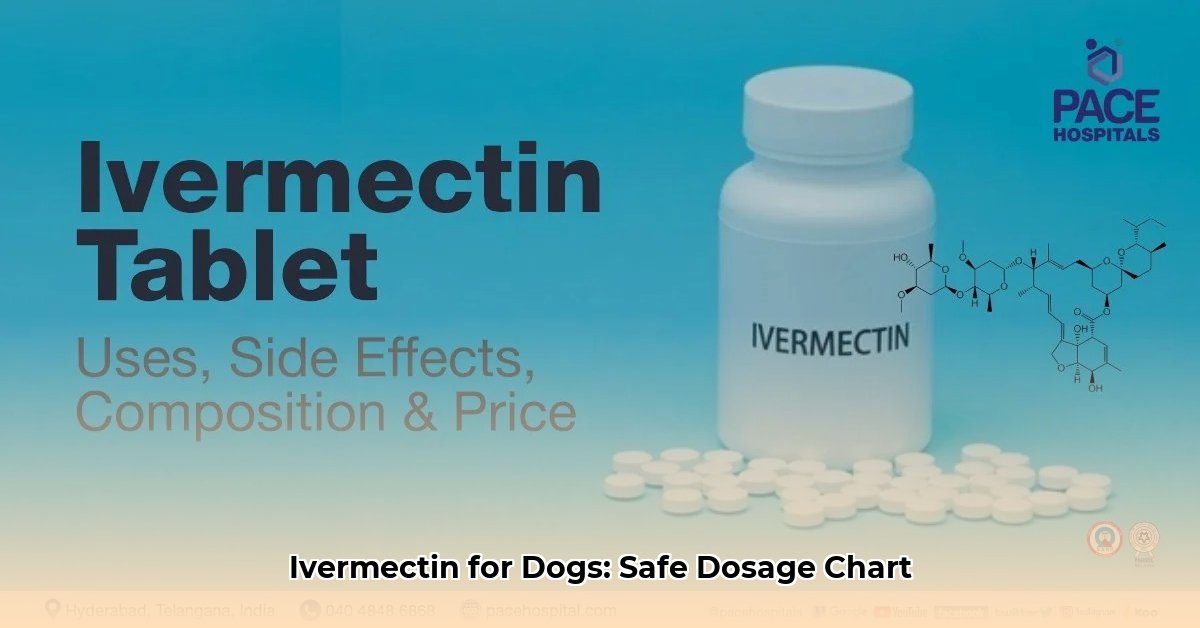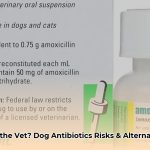Understanding Ivermectin for Dogs
Ivermectin is a medication veterinarians frequently use to treat certain parasites in dogs, including heartworms, mange mites, and some intestinal worms. While effective, it’s crucial to administer ivermectin with caution and under the guidance of a veterinarian. This guide provides essential information about ivermectin dosage for dogs, potential risks, and the importance of veterinary consultation.
Calculating the Correct Dosage
Administering the correct ivermectin dosage is paramount for your dog’s safety and the treatment’s effectiveness. Dosage is primarily determined by your dog’s weight, the specific parasite being targeted, and their overall health. Never attempt to calculate and administer ivermectin without consulting your veterinarian.
Dosage Chart (Consult Your Veterinarian for Precise Dosage)
The following chart provides general dosage ranges for different conditions. This chart is for informational purposes only and does not replace veterinary guidance. Your veterinarian will determine the exact dosage and appropriate formulation (pill, chewable, topical) for your dog.
| Condition | Dosage Range (µg/kg) | Notes |
|---|---|---|
| Heartworm Prevention | 0.003-0.006 (Monthly) | Exact dose depends on the specific product and your vet’s recommendation. |
| Mange (Skin Parasites) | 0.3 (Weekly) | Treatment duration varies. |
| Ear Mites | 0.45 – 0.91 (Once) | May repeat as directed by your vet. |
| Intestinal Parasites | 0.2 (Single Dose) | May require repeat doses depending on the parasite. |
Step-by-Step Dosage Calculation (Example Only – Consult Your Vet)
While your veterinarian will calculate the precise dosage, understanding the process can be helpful:
- Weigh Your Dog: Obtain an accurate weight using a pet scale.
- Multiply by Dosage Factor: Multiply your dog’s weight in kilograms by the appropriate dosage factor from the chart or as directed by your vet.
- Convert to Milligrams: (If necessary) Divide the result by 1,000 to convert from micrograms (µg) to milligrams (mg), the unit typically listed on ivermectin products.
Example: A 10 kg dog needs treatment for mange.
- 10 kg * 0.3 µg/kg = 3 µg (or 0.003 mg)
This is an example only. Your veterinarian will provide the specific dosage for your dog.
Ivermectin Forms and Administration
Ivermectin is available in various forms, including pills, chewable tablets, and topical solutions. Your veterinarian will prescribe the appropriate form and demonstrate the correct administration method for your dog.
Potential Risks and Side Effects
While generally safe under veterinary supervision, ivermectin can pose risks if misused or given to sensitive breeds.
Overdose Symptoms
Overdosing on ivermectin can lead to various side effects, ranging from mild to severe:
- Mild: Vomiting, diarrhea, lethargy, loss of appetite
- Moderate: Tremors, drooling, stumbling, dilated pupils
- Severe: Seizures, coma, blindness, death
If you suspect an ivermectin overdose, contact your veterinarian or an emergency animal hospital immediately.
MDR1 Gene Sensitivity
Certain breeds, such as Collies, Australian Shepherds, Shetland Sheepdogs, and Old English Sheepdogs, are genetically predisposed to ivermectin sensitivity due to the MDR1 gene mutation. This gene affects the blood-brain barrier, potentially allowing higher concentrations of ivermectin to reach the brain and causing neurological complications. Even standard doses can be toxic for these breeds. Your veterinarian can perform a test to determine if your dog carries the MDR1 gene.
Why Veterinary Consultation Is Essential
Consulting your veterinarian before administering ivermectin is not merely a suggestion—it’s a necessity. They consider various factors to determine the appropriate dosage and treatment plan:
- Dog’s Breed and Weight: Certain breeds are more sensitive to ivermectin.
- Type of Parasite: Different parasites require different dosages and treatment durations.
- Overall Health: Pre-existing health conditions can influence the safety and efficacy of ivermectin.
- Potential Drug Interactions: Ivermectin can interact with other medications.
- Alternative Treatments: Other deworming medications might be more suitable for your dog.
Alternative Deworming Medications
Several alternative deworming medications exist, such as:
- Pyrantel Pamoate: Effective against roundworms and hookworms.
- Fenbendazole (Panacur): Used to treat a broad spectrum of intestinal parasites.
- Milbemycin Oxime (Interceptor, Sentinel): Used for heartworm prevention and treatment of certain other parasites.
Your veterinarian will recommend the most appropriate medication based on your dog’s specific needs.
Preventing Parasite Infestations
Preventing parasite infestations is often easier and less costly than treating them. Here are some preventative measures:
- Regular Veterinary Checkups: Early detection and treatment are crucial.
- Heartworm Prevention Medication: Administer year-round as directed by your vet.
- Flea and Tick Prevention: Use appropriate products regularly.
- Hygiene: Regularly clean your dog’s living area and promptly remove feces.
- Avoid High-Risk Areas: Minimize exposure to areas known for high parasite prevalence.
Frequently Asked Questions (FAQ)
- Can I buy ivermectin for my dog without a prescription? Over-the-counter ivermectin products exist, but it is strongly advised to consult with your veterinarian before use. Even with readily available medications, proper dosing is critical.
- What if I miss a dose of heartworm preventative? Contact your veterinarian immediately. They will advise on the best course of action.
Disclaimer
This information is for educational purposes only and should not be considered veterinary advice. Always consult a licensed veterinarian before giving any medication to your dog. Relying solely on this information without professional guidance could be detrimental to your dog’s health.
- Meditation Guide Book Picks from Top Mindfulness Teachers - February 22, 2026
- Best Books to Start Meditation for Beginners and Skeptics - February 21, 2026
- Essential Books On Mindfulness For Beginners To Find Calm - February 20, 2026













